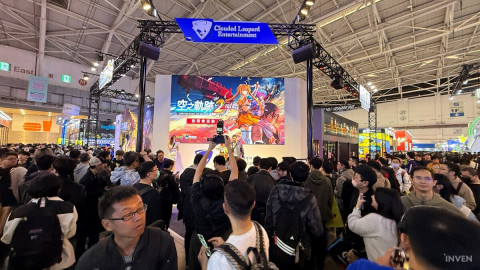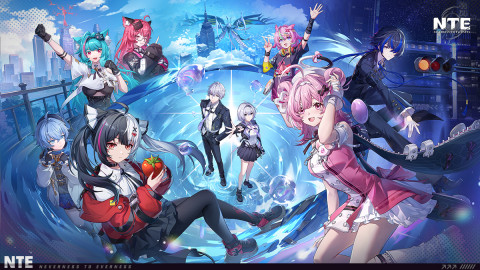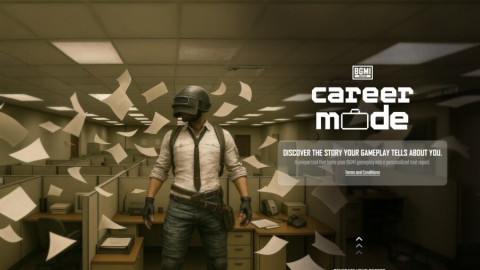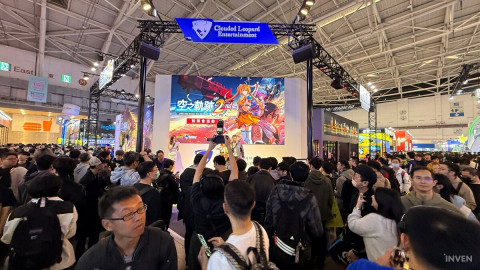
On April 6th, 2020 (KST), Riot Korea announced that the LCK will finally be implementing the long-term partnership model (franchising). It’s an announcement that many people have been waiting for, because other major regions of competitive League of Legends have already been franchised, and many were wondering when it’ll happen in the LCK.
With the announcement, Riot Games Korea announced that the 2020 LCK Summer Promotion Tournament will be the very last one. This meant that it was the last chance for any Challengers Korea team to be promoted into the LCK, and that tournament took place from Apr. 28th to the 30th (KST).
Team Dynamics is a team that was called “The King of Challengers Korea”, because they’ve always finished at the top of the standings in CK. However, since the days they were called ES Sharks, while they made it all the way to the Promotion Tournament, they ultimately fell short and were right back at square one. However, they say that the third time’s the charm, and on Apr. 29th (KST), they’ve finally qualified for the LCK.
Inven had a chance to meet with the CEO of Team Dynamics, Oh “Evans” Ji-hwan, to provide insight on how he runs the operation, his philosophies behind the work he does, and the many goals that he hopes to achieve in esports. Although he’s still a young figure in esports, both in age and in career, not only did he show much love and unity with all his staff, he was humble in what he and his organization achieved, and showed incredible ambition in what he hopes to achieve in the future.
First, can you introduce yourself to the readers?
My name is Oh “Evans” Ji-hwan, and I’m the CEO of Team Dynamics and Esports Academy Korea. I originally had a career in traditional sports, such as working with Nike and with the Korean Football Pro League, but decided to step into esports. My business was initially about properly nurturing future talent and improving pro player rights, but somewhere in that process, I managed to create and run a pro League of Legends team, and have entered the LCK, a league that many dream of playing in. It’s a great honor, and although there’s a lot of pressure having such heavy responsibilities in my 20s, I hope to be that much responsible and aspiring in continuing to offer my part in the growth of esports.
Can you share the story of how it all started for you? What made you change your career path from working in traditional sports to esports?
Originally, I was a football fanatic. I was so into it that I’d usually stay up all night to watch all the matches being held overseas live. My major’s in Business Administration, so the combination of the two made me naturally inclined to sports management. However, as I got to know more about the sports industry in Korea, I learned that the business aspect of it was generally inflexible, and was far from profitable. The reason behind it is because the industry is mostly led by corporations and the government, so to survive in this industry, the focus naturally shifts away from improving the business to promotion. Also, the fact that there’s a lot of nepotism in the industry makes it that much harder for the younger generation to implement fresh ideas and improve.
As many others are in my generation, I was also a huge fan of esports. At first, my team jumped into the market as an esports agency, because when I saw superstar players like MadLife look for teams on Twitter, I realized that players need professional help. In order to actually have agencies become a real thing in esports, I’ve created an agency called 'e&Pro Sports'. After that, I’ve created the Esports Academy Korea in the hopes of properly nurturing talent in esports, and to create the very first self-profitable club through a stable model, I’ve established Team Dynamics.
I believe that esports is a flexible market where you can implement various aspects of traditional sports, which has been built over the last 100 years. Although I do lack age and experience, the reason why I can take such an active part in this industry is not only because of its open nature, but that the market is still in its infancy. I hope to implement a lot of formulas that work in traditional sports in the esports industry.

Around this time last year, you’ve acquired ES Sharks to rebrand as Team Dynamics. Can you tell us a bit more about the takeover process?
At first, we were planning to get into Challengers Korea by creating a team with the players from our academy, but we unfortunately couldn’t make it happen. We believed that properly running a pro team is the quintessential example of esports. Also, with franchising in the LCK coming soon, we believed that this was the only opportune time that we could run a pro team.
One day, I explained to an acquaintance that works for an investment company about the pro team project. After that, he gladly went forward with the investments, and I was able to meet the CEO of ES Sharks to negotiate the takeover of the team. After that, in order to grow into the global market, we’ve rebranded the team name and logo, and we’ve been proactive with merchandising and fan meets, which are things that teams in Challengers Korea haven’t attempted so far.
Although our team has only been around for a year, I think we’ve been fortunate enough to have a lot of fans be wary of us, and I believe that we’ve made good progress in becoming friendly with the fans and the community.
When you first created the team, what was the ultimate goal that you hoped to achieve?
At first, our first objective was to make it into the LCK. I’ve told the General Manager, and someone who I trust the most on our team, Cha Min-kyu, that we should have separate overall goals. Since the beginning, he believes that going to Worlds is a realistic goal, so when it comes to the team’s performance, I share the same goals as him.
My goal is clear and simple. I want to create the first professional esports team in Korea with a robust profitable system. This has yet to be achieved in Korean baseball or football. In traditional sports, not only does a lot need to be invested in the infrastructure, there are around 50 players in a roster, so it’s fundamentally hard to have a stable profitable system. On the flip side, not only does operation in esports cost a lot less, the ratio of profit vs. number of viewers has a lot of commercial value. Through it, I wanted to create a pro team that continues to be stable and even go public. In that manner, Min-kyu and I have different sets of goals, but all for the growth of the team.
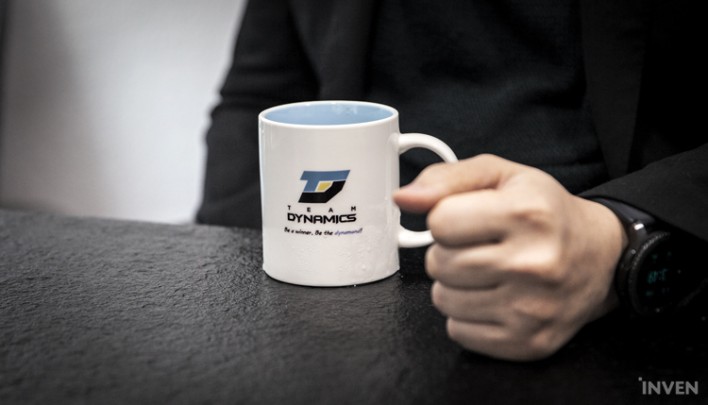
In DYN’s first season in Challengers Korea, you’ve finished first place in the regular season to go to the LCK Promotion Tournament, but was unable to qualify into the LCK. After that, you’ve picked up Kuzan (who was originally from ES Sharks) and Rich from Gen.G. How did that come to be?
From the first Promotion Tournament, I learned that the most important role is the Mid Lane. Not only do I believe that the game heavily depends on the Mid-Jungle synergy, I believed that the better our Mid Lane was, the better our team’s performance would become. So when we sat down to talk about rebuilding the roster, we told ourselves to prioritize finding a good Mid Laner. Kuzan was the highest rated player in CK, and when he became FA, he wanted to play in Korea, so we’ve actively sought out after him, and our goals aligned, so we’ve decided to work together. He did have a lot of offers from overseas, and if he could’ve easily joined another team for a higher salary, but I’m grateful that he chose to join our team.
In terms of Rich… I want to be greedy and take full credit for bringing him on board. When we were looking for a Top Laner, the pay grade of most of the Top Laners that have experience in the LCK was too much for us, and we felt that using a rookie Top Laner came with too many risks.
When things looked bleak, I was browsing through streams one day and found Rich streaming with the title, “Praciting Top Lane”. In the stream, although there were a lot of mistakes in his plays, he was adamant in his play, and it felt like he knew the right plays that he needed to make. His continued split pushing and contribution to team fights gave me a good feeling, so I immediately contacted our GM.
Personally, I feel like players who've been champions have a unique set of DNA. Even when these players do something else, their perseverance, desire to win, and their approach to understanding a game is very distinct. I was very confident in those instinctive qualities from Rich, but when he initially tried out, the results weren’t too satisfactory. However, our GM and I were very sure that bringing on Rich will be our best move, so we went forward with Rich.
Although getting 1st place in CK during our first season was good in CK standards, we came to the conclusion that it wasn’t enough to overcome the teams in the LCK, so in that sense, Rich was our ace in the hole. Shortly afterwards, Rich drastically improved, and helped create an upset in the Promotion Tournament. I strongly believe that Rich will perform incredibly well in the LCK as well.
Not a lot of people know about the Bot Laner of DYN, Feiz. Can you tell us a bit more about him?
He has been with us even before Team Dynamics was created, so I’m very fond of him. He’s a member that’s been working hard for last year’s Promotion Tournament, so he’s been with us for a year and a half. Not only is his play very stable, he has a very good eye in reading the flow of the game. Although he has much to learn and has a lot of room for growth, he’s consistently very high in the Solo Queue ladder. Being a Bot Laner comes with a lot of pressure to carry the game, so while the role can make a player self-centered, he continues to show humbleness. I’m very much looking forward to how much he grows, and the team also believes that he’s going to become a much better player as well.
This past Spring split, not only did the team start performing a lot better from the playoffs, the team eventually qualified for the LCK. I’ve heard that you even cried, so can you tell us how you felt back then?
We all bawled our eyes out. Before the promotion tournament, I felt like there’s a lot I owed. Promoting into the LCK was an important step for our organization as a whole. It was our last opportunity before franchising happened, and for us, it was a time where we needed to make progress. Although our player growth program in our academy was going well, we’ve gathered together because we had a dream. Because of our desire to safely take our next step, there was a lot of pressure and worries for everyone.
The league we were in is called ‘Challengers Korea’, and I believe that we’re the ones that accurately represented what it means to be challengers. In CK, a lot of teams come in with short term goals and end up leaving because of player salary, investment, and player contract issues, so the league was full of instability. However, we’ve proven ourselves over time that our operations were stable, has been an example within CK, and I think that we’ve proven how serious we are in our journey in LoL esports.
Although I’m an Atheist, it felt like I’ve been rewarded by a higher being for all the challenges I’ve overcome, and a mixed bag of emotions made me cry a lot. It’s a moment I could never forget.
What changed from your first experience in the Promotion Tournament?
We realized that we even needed experience when it came to playing in the Promotion Tournament. As the casters have always said, if CK teams played the way they did, they’re going to face a hard time in the Promotion Tournament. Also, the amount of pressure that came with the tournament was huge as well.
One thing I did notice is that compared to how much the LCK teams want to stay within the LCK, the CK teams are less determined to make it into the LCK. So there were two things we thought were key this time around, and one was to have a player or two with explosive potential, and the two players that fit the category was Rich and Beyond. Beyond also knows what it’s like to be at the top, and although he didn’t perform as well as last year, he knows how to properly macro as a Jungler, so I believed that he’ll be explosive at some point.
Our keyword was desperation. From GuGer, which was his third attempt at making into the LCK, to Rich and Beyond, who believed that this was our only shot, have all gathered. There was no need for all of us to tell each other to ‘Focus’ or ‘Play properly’ this time around, because everyone’s pride was on the line.
Strategically speaking, we told ourselves to play our most confident picks. Instead of creating an upset with a wildcard pick, we told ourselves to create an upset with our own abilities, and it worked.

Now that Team Dynamics is in the LCK, what’s the team’s next goal?
Performance wise, we’d like to make it into the playoffs. Right now, we want to show that we have the potential to make it into the playoffs. We also want to show that just like our name suggests, we want to be dynamic in our plays and that we’re not afraid to fight. With aggression and in domineering fashion, we want to be the team that leads the overall atmosphere of the league. In that sense, I personally rate APK Prince very highly.
Also, our groundwork comes from our fans. I believe teams that gave up on their fans aren’t professional teams at all. Although we’ve just knocked and entered the doors of the LCK, I want to personally be at the venue to greet the fans and give out snacks. Although we won’t be able to gain many fans right from the get-go, our goal for next season is to gain fans with appeal that’ll make them our fans forever.
With the franchising model being implemented in the LCK in 2021, how are you preparing for it?
Although I can’t get into much detail, we’ve found our business partners, and internally, we’re all confident that we can make it. As I mentioned before, our key strategies in entering franchising is the implementation of the things that work in traditional sports into the esports business.
According to the years of research on the traditional sports market that I conducted, not only is it important to properly manage the players and implement the various merchandising methods, it’s important to create an environment that naturally invites talented players. If sponsorships came to fruition in the Western market through industrial analysis, the domestic (Korean) sports market is still relationship-oriented.
Although the domestic esports industry holds a lot of value, I think the reason why major sponsors don’t invest into it is because those relationships are missing. Maintaining a sponsorship is key in commercialization and in monetization, and I think those aspects of the traditional sports market will be of big help in the advancement of the esports industry.
In your opinion, what are the most important aspects of making it into the franchising model?
I believe that having a fundamentally solid plan in not just making profit, but the methods of long-term development of the team is critical. This isn’t a tenure that’ll only last a couple of years. I think that it’s time for these esports teams to all create a legacy of their own, just like the traditional sports teams, and from that standpoint, it’s important to see whether or not we’re ready to create our own identity and build history.
Also, this may sound corny, but I believe that how seriously you take the esports industry is going to play a bigger part than you’d imagine.

In your point of view, what are some of the distinct qualities that separate Team Dynamics from the other LCK teams?
In terms of identity, our management, staff, and all the players are tightly united. We are bonded with the single common goal, where it once was ‘Let’s promote into the LCK’. Since then, we’ve worked hard to be promoted into the LCK, and when we did, our common goal now became ‘Let’s show what we’ve got in the LCK’. That sense of unity is our biggest strength, and the fact that we don’t give up and improve reflects that strength.
Our second strength is the level of commitment that we put in reaching out to the fans. We make sure that we’re always ready to communicate with the fans on a level that’s far and beyond how other teams communicate with their fans.
Finally, our esports academy is nurturing many young talents in LoL that are working hard to go pro. The number of students we have is at around 100, and during the Summer split, I believe that creating an infrastructure that consists of an academy team and trainees will help our team advance further into becoming one of the most competitive teams in the league.
What is your ironclad philosophy in running a team?
The groundwork of my philosophy starts from respecting individual expertise. I believe that the one thing that should never happen is for the CEO or any other operations personnel to be heavily involved in player scouting, drafting, and in reprimand. Whether you’re the General Manager or the coach, everyone has their own job, and I think the ironclad rule is to respect each other’s areas of expertise. Even so, as a pro team, I also believe that results and responsibility should follow suit.
Second, if a team doesn’t properly communicate with their fans, they’re just poster boys. The reason why sports advertising is much more appealing than any other form of ads is because they appeal to the fans’ emotion. Because of such, we’re going to listen to what the fans want and give them the things they want from us.
I’m a huge fan of the Starcraft 2 esports scene. Fans of the SC2 scene are so dedicated that they bought the sponsored drink brand themselves to post selfies of them having the drink on their social media. It’s a prime example of how a scene should be, where the fans are such die hard fans of the scene, that they’re the ones helping out the sponsors of the league.
Sports marketing isn’t just having a sponsor logo on a jersey. I think the beauty of it comes from building a tight relationship with the fans, then having the right exposure of the sponsor, so that's why we’re pouring a ton of effort into building such a relationship with the fans.

Now that you’ve overcome a huge obstacle in the form of the Promotion Tournament, many new and bigger obstacles await in the upcoming Summer split of the LCK. What is your ultimate goal that you hope to achieve in esports?
I want to make the Korean esports industry the best in Asia. I highly rate the United Kingdom as a country. The reason why they’re huge in the industry of world culture is because whether it comes to sports, music, or fashion, there’s a lot of iconic content that reflects the country. Cultural business is what will lead the next generation, and esports fits that bill just right.
When it comes to various kinds of sports, Korea is usually the one to challenge the titans, but in esports, it's different. However, recently, the reason why some people are casting doubts on why Korea isn’t the best country for esports is because the industrialization of esports has been rather poor. If I am to compare the growth of the industry to football, it’s kind of like Brazil. Although there are a ton of talented players in Korea, there hasn’t been proper accommodations for the nurturing and the growth for these players. Changes are necessary, and much effort is needed in the Korean esports industry.
I believe that there’s a lot more that could be achieved. Not just with players, but in terms of just talented people overall, I believe there are tons of people in Korea, so there’s an outstanding potential for industrial growth. Henceforth, my ultimate goal is to make the esports industry into a key industry on a national level. Although I’m taking one step at a time, the goal that’s right in front of me is to make it into LCK franchising to work towards my dream.
Lastly, would you like to say something to your players, coaches, and the staff that are working hard?
I believe that we have, and still are creating an important part of esports history. I hope that every one of you take much pride in becoming the final challengers that got promoted into the LCK. In that process, there are a lot of interested parties that helped us out greatly, and I want to thank them for understanding our sincerity and walking alongside us.
Also, a word to your fans as well.
We, Team Dynamics, want to create as many opportunities as possible to talk to each and every one of our fans and build a tightly knit relationship with them. We’ll always be more open than any other team in that manner, so don’t be afraid to fall in love with us.
Lastly, on a different note, I believe that the esports industry still has a lot of room for talent. The talent I'm talking about is those that have a deep understanding of the esports industry and specialize in each's own area of expertise. Although what I’m doing isn’t grand, many who hope to work in the sports industry reached out to me in the past, and I’ve offered help to them with sincerity.
Through this interview, although what I can do to help those interested in the esports industry may be limited, I do think that there is quite a bit I can offer. I hope many people will find the appeal in this industry and find their dream in it. On that note, please feel free to reach out to me.

For more LCK content, as well as coverage of the LCS and LEC, head over to our League of Legends section!
-

A managing editor who can do more things than you think.
-

Striving for perfection to achieve excellence in esports
Sort by:
Comments :0


